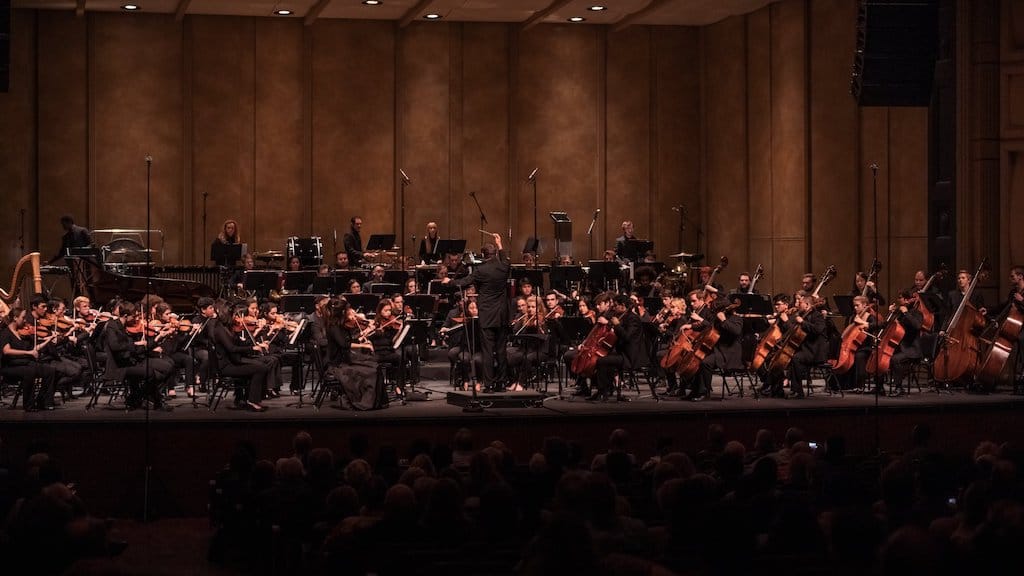The Closure of the American Youth Symphony

“American Youth Symphony Announces Permanent Closure” screamed the ‘breaking news’ headline on the Violin Channel newsletter I subscribe.
Rubbing my eyes in disbelief, I read further: “Citing financial challenges, the orchestra is ceasing all operations as of March 15, 2024, after almost 60 years.”
Due to my interest in music education, I keep abreast of youth orchestras and ensembles around the world. The American Youth Symphony (AYS) was particularly well-known to me because it was founded in 1964 by Mehli Mehta (1908-2002), who is today better recognised as father of the celebrated Maestro Zubin Mehta. But Mehta senior was an acclaimed virtuoso violinist (whose violin-playing can still be heard today in the All India Radio signature tune) and conductor. It was the musical milieu in the Mehli Mehta household in Bombay that was the stimulus for the phenomenon that his illustrious son still is today.
Zubin Mehta acknowledged as much when he told at press that his father had been his first teacher, that he had grown up listening to his father’s symphony and quartet rehearsals and that, until he was 18 and went to Vienna to study, “everything I knew about music was from my father.”
The media spotlight on the son particularly in India has meant that the father’s life in music is that much less well known.
Mehli Mehta founded the Bombay String Quartet in 1940. He spent five years in New York City studying with eminent Armenian-American violin pedagogue Ivan Galamian, who was the teacher of many seminal violin players including Dorothy DeLay, Itzhak Perlman Kyung Wha Chung, Glen Dicterow, Eugene Fodor, Ani and Ida Kavafian, Michael Rabin, Simon Standage and Pinchas Zukerman.
In 1955 Mehli Mehta moved to England, where he served for five years as Assistant Concertmaster and Concertmaster of the Hallé Orchestra of Manchester under Sir John Barbirolli. Mehta came to regard Barbirolli as “one of the greatest influences of my conducting life.”
He joined the Curtis Quartet of Philadelphia in 1959 as second violinist and toured with them across the United States for the next five years. In later years he was to state, “the string quartet has been the prime, basic factor of my entire musical philosophy.”
Mehli and his wife Tehmina then moved to Los Angeles in 1964 after Zubin was appointed conductor of the Los Angeles Philharmonic. He was Director of the Orchestra Department at UCLA (University of California, Los Angeles) until 1976.
Within a couple of months after his arrival there in 1964, Mehli organised the AYS with students from all the universities in Los Angeles.
Its mission statement: “To train gifted young musicians for professional careers in symphony orchestras; to make music available to all segments of the community through free concerts and activities around town.”
“It takes a lifetime to learn symphonic literature. The students know nothing and they must begin somewhere to dedicate their lives to learning this repertory. When they leave the American Youth Symphony they will have performed all the symphonies of Beethoven, Brahms, Tchaikovsky and Dvorak, plus the last six symphonies of Mozart, five of Mahler, two of Bruckner and all the Strauss tone poems. To be a musician, you must know these things,” he said.
He would lead the AYS for 33 seasons, retiring at age 90 in 1998.
The AYS audition information at the now-defunct website declared, “As a member of the American Youth Symphony, you will receive tuition-free training, have wonderful opportunities to enhance your musical growth, experiment, study new works, develop leadership skills, and perform at a high level of excellence some of the great repertoire required of a musician today!”
Each season, around 250-300 applicants auditioned to fill an average of 30 open positions. There was no audition fee.
On Beethoven’s 200th birthday, 16 December 1970, father and son conducted their respective orchestras in a twelve-hour Beethoven Marathon in the Dorothy Chandler Pavilion. Mehli led the AYS in Beethoven’s Fifth Symphony, while Zubin conducted the LA Phil in Beethoven’s Sixth and the finale of the Ninth.
In his biography of Sir john Barbirolli, author Michael Kennedy quotes the great conductor as saying, “I… attended Mehli’s concert with the American Youth Symphony. I am glad I did, for dear Mehli was magnificent. Made those children play really quite splendidly. I was really thrilled and impressed.”
Mehli mentored many generations of musicians through the AYS. Violinist Lawrence Sonderling, a member of the Los Angeles Philharmonic since 1977 and a former American Youth Symphony concertmaster, said that Mehli Mehta “did everything with great intensity and great purpose and great love for music. It was always the music that was the most important thing. In rehearsal with the orchestra, he would badger us, he would yell and scream; sometimes he would tell stories of things he had heard and seen in his musical youth. Always the intensity was there. And the passion.”
After his father’s death in 2002, Zubin Mehta told the LA Times: “Any concert of mine that he attended, there was no doubt to whom my message was going. That is what I will miss in Los Angeles, because he will not be there anymore.”
But the AYS lived on after him, performing five to seven concerts each season, the majority of concerts presented free to the public at world-class concert halls, including UCLA’s Royce Hall, Walt Disney concert hall and local community venues alike, with “the goal of welcoming anyone who is interested to enjoy this beautiful art form.”
Press reviews spoke of the “assured maturity, polish and depth” of the orchestra concerts.
AYS alumni went on to play in major American orchestras. A 2014 survey found that thirteen AYS alumni performed with the LA Opera, seven with the Los Angeles Chamber Orchestra, and fourteen with the Los Angeles Philharmonic.
The press release announcing the sad news of it closure stated: “AYS has played a crucial role in nurturing the next generation of professional musicians and fostering a vibrant artistic community. AYS presented ambitious seasons of thoughtful programming of exceptionally high quality, covering a breadth of symphonic music, including beloved classics, film scores, chamber works, and contemporary pieces, while championing many of today’s composers.”
It spoke of “insurmountable” challenges and an “unsustainable financial infrastructure.” We have exhausted every effort and hope the larger orchestral industry and classical music philanthropic community take note to shore-up these important pre-professional orchestras like AYS which directly benefit them.”
This latest news is part of a larger depressing trend worldwide to cut funding for music education at all levels, from grassroots to the top. Last month there was outrage over “mean and nasty cuts” to Melbourne Youth Orchestras, Australia.
India unfortunately lags far behind, not having a national youth orchestra in the truest sense of the term, with several concerts each season annually, and with year-round world-class mentoring. As a nation, we have our priorities elsewhere.
And in global terms, a 1953 cartoon, “The restaurant serves only one person” is still sadly topical: waiters fuss over a bloated representation of War while other, emaciated customers, the Arts, Sciences, Healthcare and Education look helplessly on.
This article first appeared in The Navhind Times, Goa, India.





